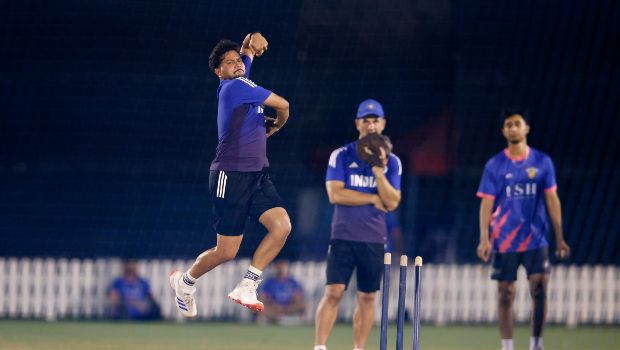In a highly charged finale that extended beyond the boundary ropes, India clinched their ninth Asia Cup title with a five-wicket win over Pakistan on Sunday but made headlines not just for their triumph, but for a striking act of protest during the post-match presentation.
Led by stand-in skipper Suryakumar Yadav, the Indian team refused to accept the Asia Cup trophy from Asian Cricket Council (ACC) President and Pakistan’s Interior Minister, Mohsin Naqvi, in a gesture that showed the ongoing tensions between the two nations.
Despite being declared champions after a close-fought match, Indian players declined to participate in the traditional trophy handover. Presenter Simon Doull initially announced that Naqvi would present the runners-up medals to Pakistan players, but the role was instead carried out by Bangladesh’s Aminul Islam. Naqvi did, however, hand the runner-up cheque to Pakistan captain Salman Agha.
The post-match presentation saw over an hour of delay, with Pakistan players also slow to appear, further heightening the unusual nature of the occasion. Doull ultimately informed viewers that India had refused to collect their medals and the winner’s trophy — bringing the ceremony to an abrupt and awkward end.
As the event concluded, Indian players were seen celebrating with the “Champions” banner, conspicuously absent from any photo opportunity involving the trophy itself.
Ahead of the final, reports had emerged suggesting the Indian team would decline to receive the trophy if it were presented by Naqvi, who also serves as the President of the Pakistan Cricket Board (PCB). The tension appeared to carry over from earlier matches in the tournament, where Indian players avoided post-match handshakes with their Pakistani counterparts.
Even at the toss before the final, Suryakumar Yadav refrained from greeting Pakistan captain Salman Agha. The trend continued after the match, as Indian players Tilak Varma and Rinku Singh skipped customary handshakes, echoing the diplomatic distance maintained throughout the competition.
While the cricket itself delivered a thrilling spectacle, the aftermath has raised new questions about the role of politics in sports, particularly in high-stakes tournaments involving India and Pakistan. With the Asia Cup now over, attention will shift to how governing bodies respond to these off-field developments in the lead-up to future international events.

























